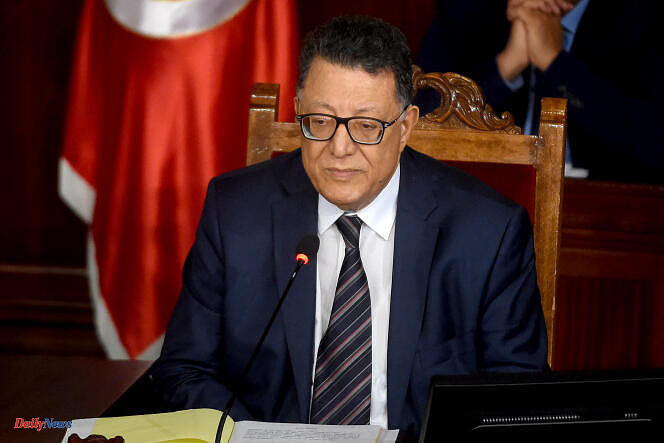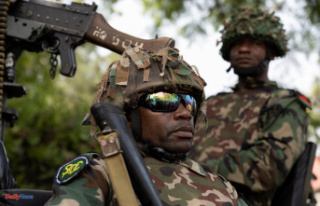A year ago, during the establishment of the new Assembly of People's Representatives (ARP) in Tunisia, the opposition expressed its concerns: instead of a counter-power, this legislative body had all the The air of a recording room in the pay of President Kaïs Saïed. An initial assessment proves him right, while the deputies stood out for their lack of weight in the face of an all-powerful executive. The legislative power, considerably weakened compared to previous mandates, presents little room for maneuver and appears largely subordinate to the president and the government.
Meeting for the first time in plenary session on March 13, 2023, the deputies were elected following a two-round vote which had been massively boycotted by the opposition. These elections saw historically low turnout, just above 11%. The people's representatives were the first to sit in accordance with the new Constitution, adopted a year earlier. The text limits their power and increases that of the President of the Republic. It provides that the head of state can dissolve the ARP and grants it the right to govern by decree and to assume full powers without time limit.
In this limited framework, little work was carried out upstream by the deputies. Out of around a hundred pieces of legislation submitted, only 34 were adopted, all emanating from the executive. Among these projects, a large part concerns the formal validation of loan agreements or conventions already concluded by the executive.
“This clearly shows that this institution has become a chamber for recording laws wanted and decided by the president,” comments Amine Kharrat, political analyst at the Al Bawsala organization, responsible for monitoring the work of Parliament during the legislature. previous, but having chosen to “boycott” the new institution because of its “disagreement with the current political process and the way in which Parliament was elected”.
“We did a lot of things, adopted several bills,” defends MP Fatma Mseddi, elected in 2014 under the banner of Nida Tounes, the party of former President Béji Caïd Essebsi, which she left to support Kaïs Saïed since his coup in July 2021. If she also mentions the legislative proposals emanating from deputies, none, for the moment, have been adopted.
Opaque operation
For Amine Kharrat, there is “almost perfect alignment” between the deputies and the president. “There is rarely opposition against the executive, and when there is, it is always directed towards ministers, not towards the head of state,” he believes. “In the old Parliament, everyone had an ideology: the Islamists, the Destourians, the nationalists, the social democrats. Today, there is none of that anymore,” regrets Majdi Karbai, former center-left deputy, whose mandate was suspended by the head of state in July 2021.
To date, the only attempt to free Parliament from the executive concerns a proposed law on the criminalization of the normalization of relations with Israel. While the text began to be examined by deputies in plenary session in early November 2023, the head of state declared his opposition to its adoption, despite the support of the parliamentary majority. Examination of the text was suspended. Following this speech, the president of the ARP, Brahim Bouderbala, also retracted.
For once, several elected officials who nevertheless support the process initiated by the head of state expressed their disagreement with the president and accused Mr. Bouderbala of having given in to pressure. Put back on the agenda at the end of February, examination of the proposal was once again postponed. Disavowed by the executive in its first real attempt to exercise its legislative power, Parliament emerges even more weakened from this sequence.
Former president of the Bar Association, the president of the ARP has been an unwavering supporter of Kaïs Saïed since the latter assumed full powers. It has radically made the functioning of the legislative body opaque, limiting access to Parliament, particularly within parliamentary committees, which always take place behind closed doors. “It is a Parliament that functions without control. Previously, civil society organizations reported on MPs' attendance and votes. It’s over today,” laments Majdi Karbai.












